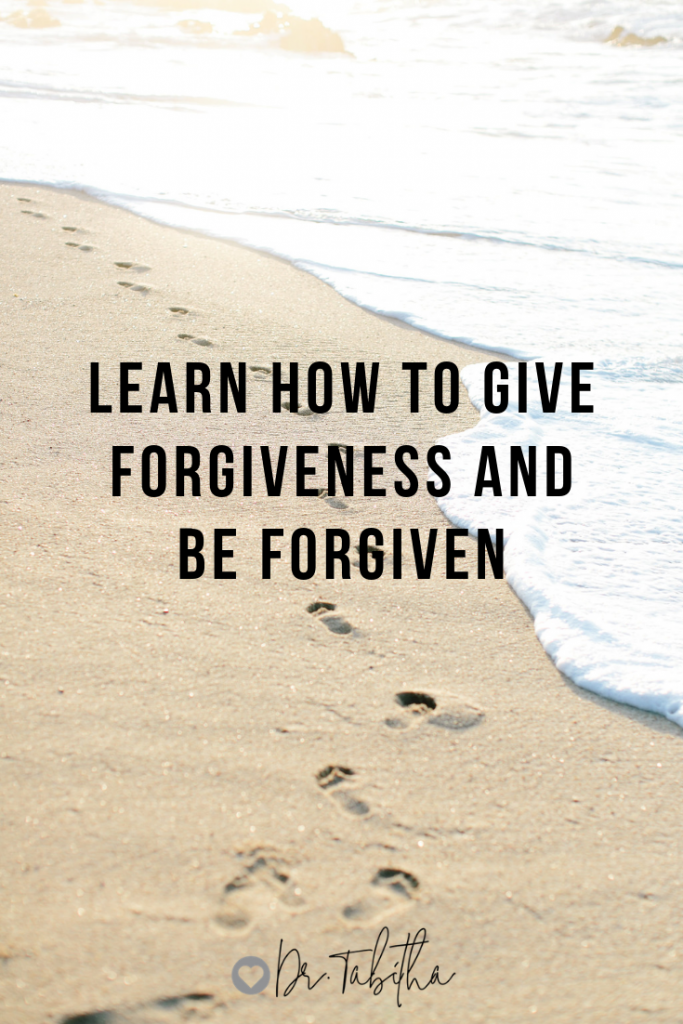
At some point in your life, it’s pretty much guaranteed you will experience conflict, hurt, or be let down by someone you care about. You will also hurt someone else or let them down, even if it’s done unintentionally. Sometimes hurt and conflict occur in smaller ways like forgetting a special occasion or having an argument over who should do the dishes. There are other times where a major betrayal is the problem such as infidelity, abuse, or addiction. It is important to note that whether it is a major or minor incident, intentional or unintentional – taking time to seek and give forgiveness can play a huge role in healing.
So, what is forgiveness? “Forgiveness is a conscious, deliberate decision to release feelings of resentment or vengeance toward a person or group who has harmed you, regardless of whether they actually deserve your forgiveness.” Why should you forgive someone who has hurt you? Forgiveness is a process that allows someone to heal and restore their inner peace. It also sets the course for reconciliation in a relationship. Research also shows that forgiveness is not only good for your relationships but also for your physical and mental health.
There are often misconceptions regarding forgiveness. Forgiveness is not forgetting. It is not condoning the behavior or seeking revenge. One of the biggest misconceptions about forgiveness is that it doesn’t always result in an immediate peaceful resolution. It is not a quick fix; it is a process.
Whether you need to forgive someone or need to be forgiven, here are five steps to help you get started:
FIVE STEPS FOR SEEKING FORGIVENESS
- Take responsibility for your actions by admitting what you did was hurtful and wrong. Own your part and don’t make excuses.
- Empathize with the other person’s feelings about your actions.
- Assure that person you will not do it again.
- Apologize and ask for forgiveness.
- Forgive yourself.
FIVE STEPS TO GIVE FORGIVENESS
- Acknowledge your pain and anger. Allow yourself to feel disrespected (or however you might be feeling).
- Be specific about your future expectations and limits.
- Let go of the blame/resentment, and give up your right to “get even’. Insist on being treated better in the future.
- Communicate your act of forgiveness to the one who hurt you (if possible).
- Work toward reconciliation (when safe).
Although achieving reconciliation requires more than just one person, true forgiveness comes from an individual’s desire to seek healing. This is regardless of whether someone else is willing to take responsibility for their actions or offer an apology for the hurt they’ve caused. When you release the burden of hurt that has been inflicted upon you, or release the burden of guilt for the hurt you have inflicted upon someone else, you are taking a necessary step in healing. As you release the hurt, you gain the freedom to move forward and reclaim what you’ve lost.
“The weak can never forgive. Forgiveness is the attribute of the strong”. Mahatma Ghandi
If you’ve been struggling with feelings of resentment or you find yourself shutting down emotionally, we can help you heal your relationships. Our therapists at Family Therapy Associates are highly skilled in helping individuals process their negative emotions, effectively communicate what they are feeling and start the path toward healing. Click here to schedule your appointment today.






Leave a Reply
Your email is safe with us.